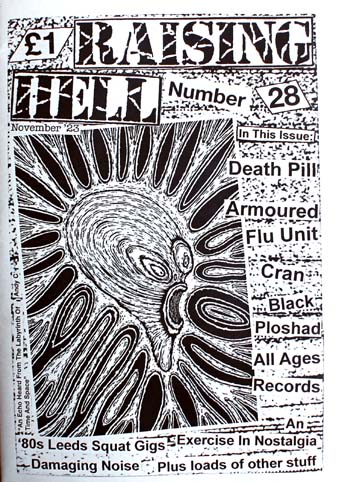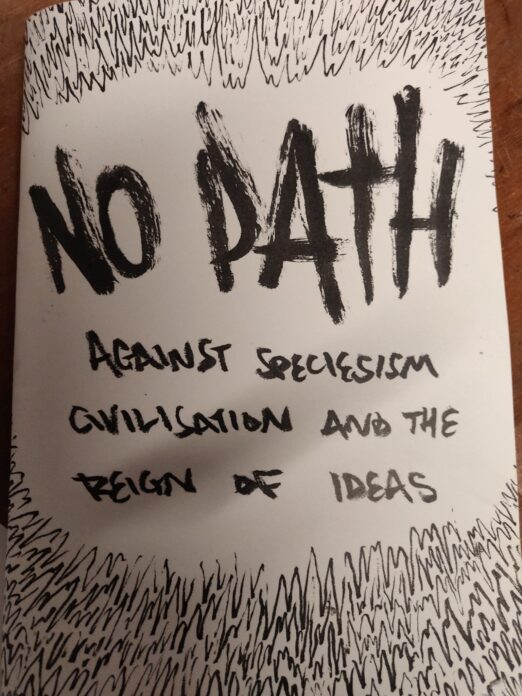Listen Anarchist by Chaz Buf
£1.00
Mr See Sharpe Press passionately suggests reasons why anarchism has not “caught on” as he believes if should have.
In stock
Description
Introduction by Janet Biehl
|
| The republication of Listen, Anarchist! 13 years after its first appearance is a particularly welcome event. In only a few pages Chaz Bufe succeeds in diagnosing many of the ills of North American anarchism, both in ideas and activities. The power of the pamphlet derives not only from the pithiness of its insights and its unpretentious style, but from its clear and forceful exposition and its willingness to speak out against immorality and injustice within the movement.
Lamentably, the intervening years since 1987 have not cured the malaises Bufe diagnosed. On the contrary, they have acquired greater virulence. Fifth Estate, for example, has continued propagating its anti-technological, primitivistic, and mystical doctrines. David Watson (aka George Bradford, among other pseudonyms) has even tried, in Beyond Bookchin, to appropriate the term “social ecology” for these regressive notions, attempting to supplant a body of forward-looking, rational, and humanistic libertarian ideas with his own benighted primitivism. At about the same time that Watson’s essay appeared, an editor of the English magazine Green Anarchist came out in support of the Unabomber, the Oklahoma City bombing, and the Aum Shinrikyo cult, which released sarin nerve gas in the Tokyo subway. (Green Anarchist is an anarcho-primitivist periodical that regards Fifth Estate as one of its precursors.) This appalling development showed, among other things, the merit of Bufe’s criticism of primitivism and mysticism: “if anarchists reject rationality and revert to mysticism, it’s a safe bet that they too will go goose-stepping off in increasingly authoritarian directions.” Only in the fall of 1997, in a discussion of Green Anarchist, did Watson finally begin to retreat from his primitivist views. In the meantime, Robert C. Black has gone on to celebrate Anarchy After Leftism, in a book whose smokescreen of insult and vitriol hides a basic lack of ideas about what “anarchy after leftism” really represents, apart perhaps from the supremacy of self-interest. In these writings anarchism’s longstanding socialist dimension is jettisoned in favor of individual escapades. Black’s personal conduct has mirrored his amoral views. In 1996, he acted as a police narcotics informant against Seattle author Jim Hogshire, resulting in a police raid on Hogshire’s home. [See the Loompanics Unlimited Fall 1996 Supplement, pp. 12–17 for details; see also the narcing letter from “citizen informant” Bob Black to the Seattle Police Department.] Many of the ills Bufe documents in Listen, Anarchist! derive ultimately from anarchism’s individualistic tendency, whose animating spirit is the 19th-century anarcho-egoist Max Stirner. From the dragon’s teeth that Stirner sowed have sprung, most recently, a legion of “fashion” or “life-style” anarchists who appear to be unfamiliar with anarchism’s claim to constitute an ethical socialism. In fact, one of the most disquieting observations that Bufe makes is that some anarchists have reacted to incidents of immorality and even violence with indifference: “Sure Bob Black is a destructive nut,”he quotes one as saying, “but he hasn’t attacked us.” Similarly, a comrade in the Netherlands —where Black’s writings have, astonishingly, gained some popularity—has told me that when he tells Black’s local fans of his violent and unethical activities, they respond with equal indifference. Currently in the U.S., despite Black’s narcing on Jim Hogshire—a widely known betrayal of anarchist principles (contact Loompanics for details)—at least a few vocal “anarchists” continue to support Black and his brand of amoral egoism. Such unconcern is a far cry from the left-libertarian ethos that once proclaimed, “An injury to one is an injury to all!” Apathy in the face of immoral and unjust behavior toward one’s fellow anarchists, let alone toward one’s fellow human beings, reflects a grave breach of the ethical standards with which anarchists have long identified themselves, in contrast to many marxists and, especially, leninists. Ethics lies at the heart of a truly libertarian movement that offers a vision of a cooperative and humane society. An anarchism that dismisses even gross violations of basic ethical standards with an anemic shrug has not only lost its moral high ground as the libertarian alternative to authoritarian or state socialism; it has undermined its claim to represent a movement for basic change, individual as well as social. Instead it has become a pseudo-rebellious conceit, a self-serving gloss, a passing stage of late childhood development, or as Bufe puts it very well, a fashion trend. The diffusion of such moral indifference among anarchists would transform anarchism itself into something that most of those who once proudly used that label would scarcely recognize. Libertarians today who cherish ideas of a cooperative and just society would do well to express their outrage at immorality and violence in their own milieu as well as in the larger society, reaffirming anarchism’s call for ethical renovation. Only then will we have a movement that deserves to gain wider support. |




